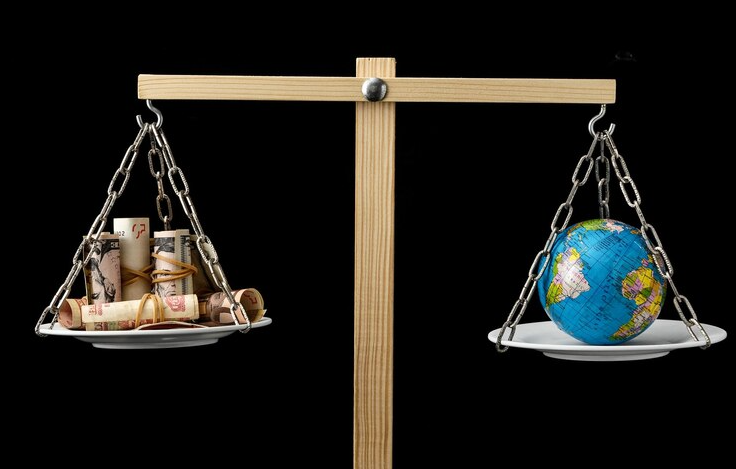In 2024, Nigeria recorded a notable 3.4% growth in its Gross Domestic Product (GDP), signaling what many economists would consider a positive trajectory for a developing economy. The World Bank commended the Nigerian government for implementing tough structural reforms such as the removal of fuel subsidies and the liberalization of the foreign exchange (FX) market—moves considered essential for long-term fiscal sustainability. However, beneath these figures lies a painful paradox: while the economy appears to be growing, the majority of rural Nigerians are becoming poorer.
The Grim Reality Behind Economic Growth
According to recent World Bank data, a staggering 75.5% of rural Nigerians now live on less than $2.15 a day, a threshold that defines extreme poverty under international standards. This revelation has raised critical questions about the inclusivity and equity of Nigeria’s economic recovery. How can an economy be growing while its poorest citizens are sinking deeper into poverty?
The answer lies in the structure of Nigeria’s economic reforms and how their benefits, and burdens are distributed.
Fuel Subsidy Removal: A Necessary Pain?
In mid-2023, the Nigerian government scrapped the decades-long fuel subsidy regime, citing unsustainable costs and inefficiencies. While this move was praised by global financial institutions like the International Monetary Fund (IMF) and the World Bank, it had immediate ripple effects on ordinary Nigerians—especially those in rural areas.
Fuel prices more than tripled in some regions, triggering inflation in transportation, food, and essential goods. For rural dwellers, many of whom are subsistence farmers with limited income, the increased cost of living outpaced any potential economic gains. Unlike urban populations, they often lack access to social welfare schemes, formal employment, and infrastructure that could help cushion the shock.
FX Liberalization and Its Uneven Effects
Another celebrated reform was the unification of Nigeria’s multiple exchange rates. The FX liberalization aimed to increase transparency, attract foreign investment, and reduce corruption. However, it also led to a significant depreciation of the Naira. Imports became more expensive, and inflation surged—hitting low-income households the hardest.
For rural communities reliant on imported goods such as fertilizers, fuel, and certain food items, this has been devastating. The inflation rate for food—Nigeria’s biggest household expenditure—soared, further diminishing purchasing power and food security.
Economic Growth Without Job Creation
Despite the 3.4% GDP growth, job creation has not kept pace. Much of the economic activity driving growth is centered around sectors like oil, telecommunications, and finance, which are capital-intensive but not labor-intensive. This means that while these industries may boost GDP figures, they contribute little to employment for the average Nigerian—especially in rural areas where agriculture remains the mainstay.
The Growing Urban-Rural Divide
These economic developments have intensified the urban-rural divide. Urban dwellers, though also affected, often have better access to information, infrastructure, and diversified sources of income. Rural Nigerians, on the other hand, are more exposed to the risks of climate change, lack access to credit or insurance, and face declining public investment in health, education, and agriculture.
What Needs to Change?
The Nigerian government must recognize that macroeconomic stability alone is not enough. Without policies that target poverty reduction, improve rural infrastructure, and protect vulnerable populations, economic growth will remain a paper achievement. Here are some recommendations:
-
Expand Social Safety Nets: Conditional cash transfers and food support programs should be scaled up, particularly in rural communities most affected by inflation and subsidy removal.
-
Invest in Rural Infrastructure: Roads, schools, health centers, and irrigation systems must be improved to enhance productivity and quality of life.
-
Support Smallholder Farmers: Access to affordable credit, fertilizers, and modern tools can significantly boost agricultural output and income.
-
Monitor Reform Impact: Economic reforms should be accompanied by a monitoring mechanism that measures their real-time impact on vulnerable groups, allowing for timely policy adjustments.
Final Thoughts
Nigeria’s current economic trajectory highlights the complexity of development. While reforms are essential for long-term stability, they must be inclusive and sensitive to the realities of those living in poverty. Growth that leaves the majority behind particularly the rural poor, is not just unsustainable; it is unjust.
As Nigeria continues its path toward economic reform, policymakers must balance global recommendations with local realities, ensuring that the pursuit of growth does not come at the cost of deepening inequality.
Published on Xamblog.com – Your Source for Thoughtful Perspectives on Development, Policy, and People.
Last Updated on June 19, 2025 by kingstar





